Raccoons Will Eat Just About Anything, but They Do Have Favorite Foods
Raccoons may look like bandits, but given a proper diet, this little forager will leave your trash cans alone.
Published July 30 2024, 10:34 a.m. ET
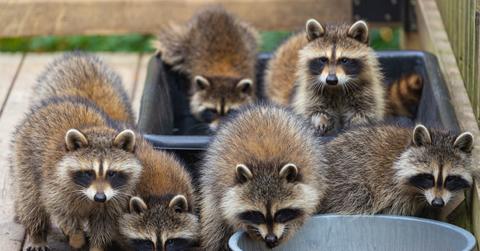
While one rescue raccoon won the hearts of many as the latest Cadbury Easter Bunny, it's safe to say that holiday chocolates are not part of a raccoon's typical diet in the wild. From insects and other similarly-sized animals found in nature to plant materials easily scavenged in the wild, a raccoon's diet is a fascinating one to behold.
Raccoons have a reputation, perhaps unfairly, as being trash bandits due to their proclivity for foraging and a bandit-like "mask" that adorns their eyes. But if you were to find a raccoon in the wild, at a wild animal rehabilitation center or sanctuary, or stumble upon a juvenile raccoon, what would they actually be eating?
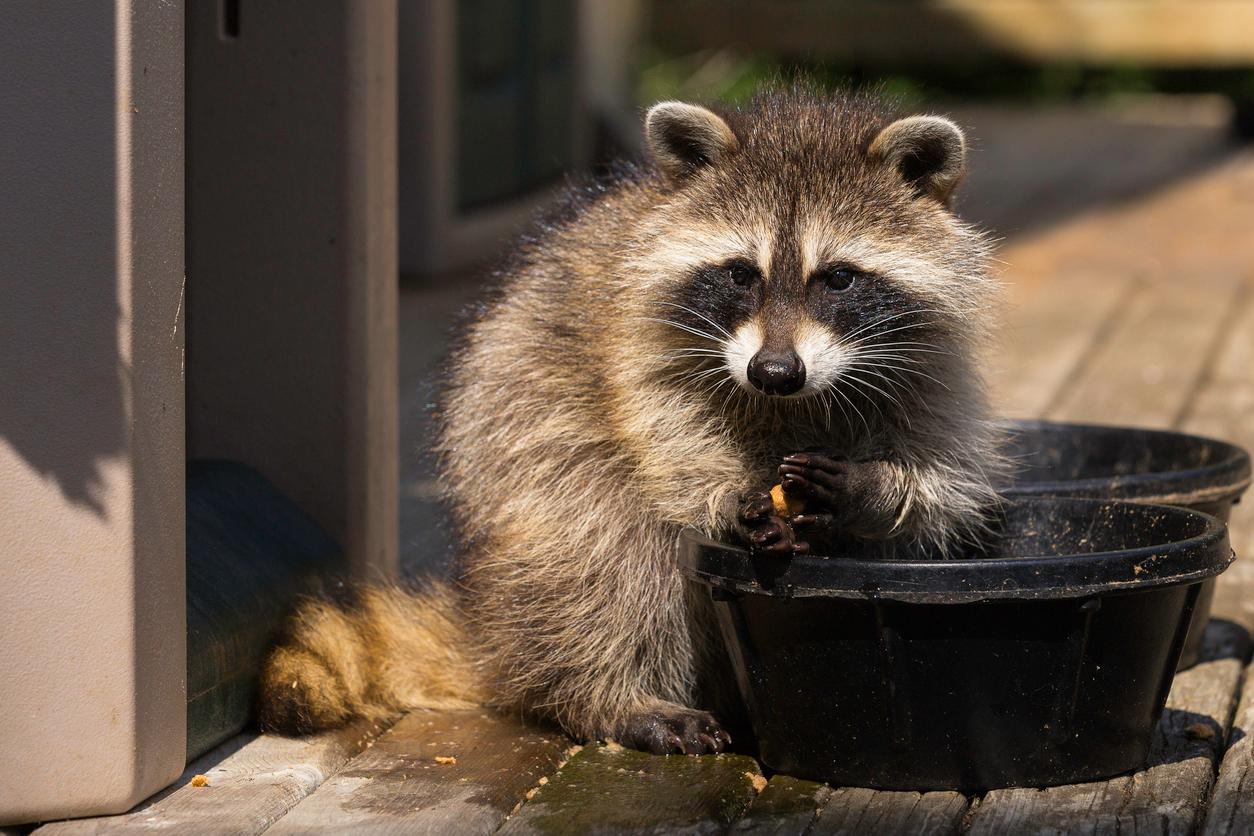
What do raccoons eat?
According to pest control company Terminix, a raccoon's diet is largely informed by their proximity to different food sources. Raccoons are omnivores and fairly indiscriminate eaters — so raccoons living near a water source will likely eat the vegetation and aquatic life found there, while raccoons living in a suburban or metropolitan area are more apt to feast on whatever food scraps and vegetation they can get their (adorable) hands on.
A raccoon's wish list would likely feature an array of animals, such as crayfish, clams, snails, and nearby frogs, as well as the carcasses of dead animals.
Per Terminix, raccoons most often hunt for food in isolation, and when they find food sources, they eat as much as possible, storing fat for the winter season.
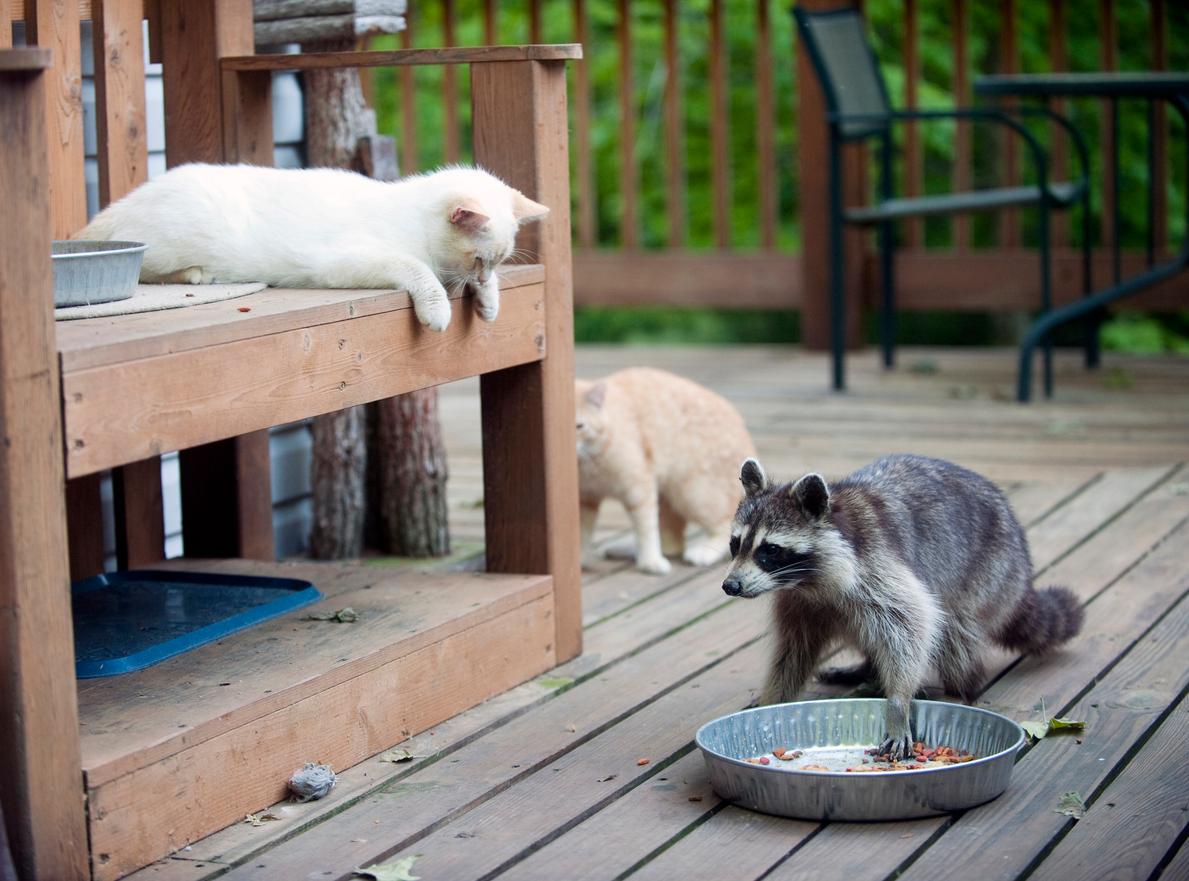
Do raccoons eat cats?
It's possible a raccoon would eat a cat, but the environment matters for this hypothetical question.
Cats and raccoons can live in harmony with one another, provided that sufficient food sources exist for the raccoon elsewhere in nature. If the cats and raccoons have observed one another previously without incident and no other external stressors, such as conflicts for food sources, occurred, the two animals can coexist in a shared space.
There is no guarantee a hungry, nutrient-deprived wild raccoon who stumbles upon a cat cruelly left outdoors wouldn't consider the cat a source of food — or vice versa. Cat food left outdoors, though, may attract a raccoon more than an actual cat.
As Skedaddle Humane Wildlife Control explains, the relationship between cats and raccoons is one often of indifference. Being of similar size, a raccoon is simply less likely to attack an adult cat, preferring instead to hunt smaller prey.
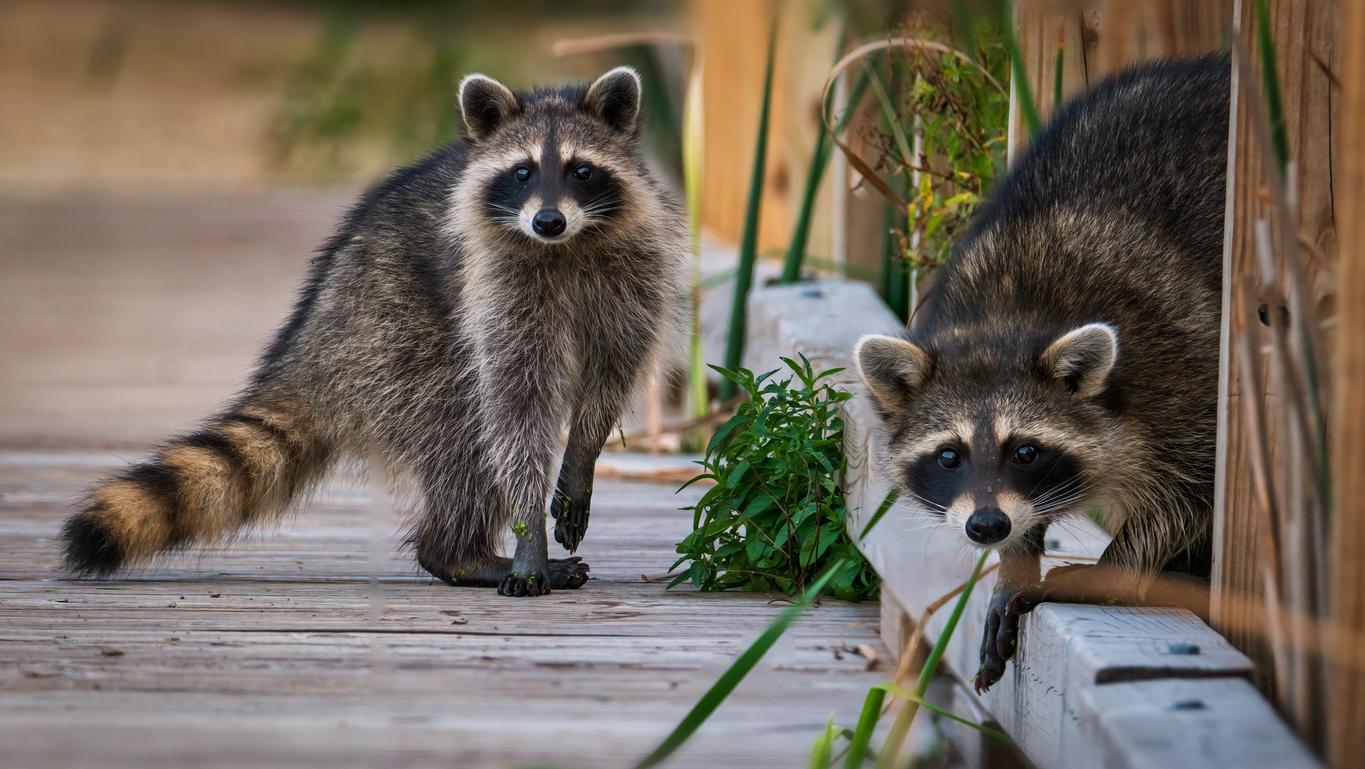
Do raccoons eat chickens?
Anecdotally, raccoons may hunt backyard chickens, as was the case in one HGTV writer's residence.
Skedaddle Humane Wildlife Control, once again sharing our ethos that chickens are our friends and not our food, explains that raccoons view chickens, especially young ones, as easy prey, especially at night.
So if you have chickens and raccoons live in your area, you should consult a local wildlife expert. They can help ensure the safety of your chickens as well as perhaps the humane relocation of wild raccoons.
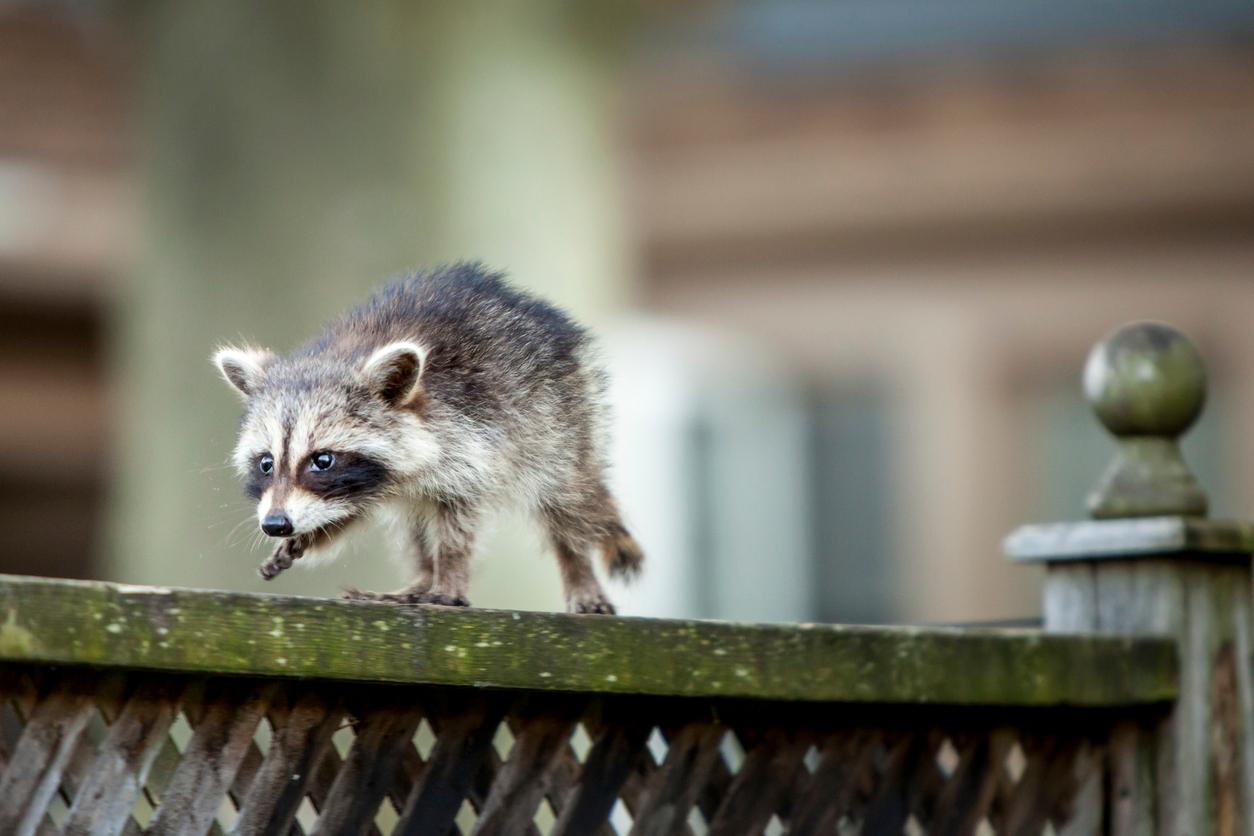
How much to feed an infant raccoon:
According to Bandit Ranch Rehab, a Canadian nonprofit that rehabs orphaned or otherwise injured raccoons, baby raccoons can become orphaned when their mother is killed. In these cases, a wildlife rehabilitator may rescue or care for an orphaned baby raccoon.
Orphaned Wildlife Care notes that infant raccoons should be fed kitten milk replacement formula (KMR) or Esbilac, which is puppy milk replacement formula. These formulas are typically made of cow or goat milk.
If young raccoons are fed too much, they may experience bloating and diarrhea, which can be fatal for infant raccoons. Both Bandit Ranch Rehab and Orphaned Wildlife Care recommend feeding them 5 percent of the baby's body weight at each feeding. Once the cubs reach the maturation stage of opening their eyes and urinating and defecating independently, this typically coincides with the introduction of mushy bananas and other sweet foods.